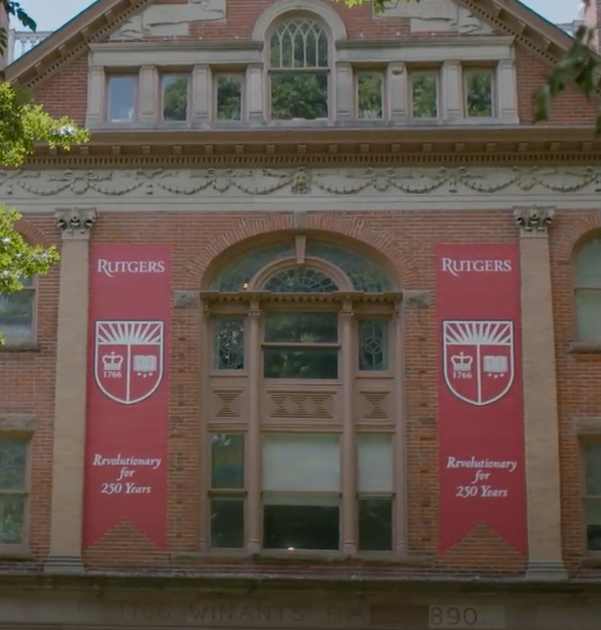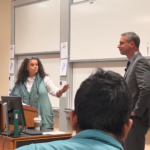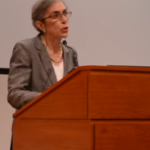A Race to the Bottom in Language Standards

Richard L. Cravatts, Ph.D., a Freedom Center Journalism Fellow in Academic Free Speech and President Emeritus of Scholars for Peace in the Middle East, is the author of Dispatches From the Campus War Against Israel and Jews.
When the prescient George Orwell observed that “There is no swifter route to the corruption of thought than through the corruption of language” he may not have been anticipating what is taking place with educators who have allowed their obsession with racial justice to influence how they maintain standards in their teaching methods and pedagogy.
Last July, for example, as the country was embroiled in race-motivated riots and social unrest over the death of George Floyd and others, The Conference on College Composition and Communication (an affiliate of the National Council of Teachers of English) released a set of demands to achieve what they termed “Black Linguistic Justice.” The document had the curious name “This Ain’t Another Statement! This is a DEMAND for Black Linguistic Justice!” but the message was clear: that the purported violence against Black people by police on the streets of America reflected the same alleged racist situation in schools. “As language and literacy researchers and educators,” the demand document read, “we acknowledge that the same anti-Black violence toward Black people in the streets across the United States mirrors the anti-Black violence that is going down in these academic streets.”
Not content to have a single standard by which the English language is taught, these social justice charlatans demanded, first, that “teachers stop using academic language and standard English as the accepted communicative norm . . . .” Why is that? Because standard English, something that should be and is color blind, in the minds of these activist educators “reflects White Mainstream English!,” presumably a situation that is untenable. Black students should not have to choose between Black linguistics and standard English usage, they contend, something they refer to as “code-switching,” because “this is linguistically violent to the humanity and spirit of Black Language speakers.” Instead of having all students learn one standard of English usage, these activists wish Black students to think of conforming to standards as something that is inherently racist, and the educators demand that Black students be constantly reminded of their victim status, that “we must teach Black students about anti-Black linguistic racism and white linguistic supremacy!”
Educators, in their view, must “develop and teach Black Linguistic Consciousness that works to decolonize the mind (and/or) language, unlearn white supremacy, and unravel anti-Black linguistic racism!,” decolonizing the mind presumably meaning abandoning any semblance of consistency in language use—use that is the culmination of generations of accepted learning, traditions, and standards for all students—not just white ones.
Not coincidentally, the 2019 chair of the Conference on College Composition and Communication was Asao B. Inoue, who directs the University of Washington-Tacoma’s Writing Center. At a 2019 presentation held at Ball State University, “Freeing Our Minds and Innovating Our Pedagogy from White Language Supremacy,” Inoue, a champion of Black linguistic justice, suggested that “We are all implicated in white supremacy.” “This is because white supremacist systems like all systems reproduce themselves as a matter of course,” he said. “This includes reproduction of dominant, white, middle-class, monolingual standards for literacy and communication.”
And it is not only standards of language use that should be abandoned, according to Inoue and other social justice activists. Grading itself—in other words, assessing performance of students—is inherently racist and should be eliminated. During the presentation, for example, Inoue asserted that, far from being a way to measure the performance of all students in a way that is consistent and equitable, “grading is a great way to protect the white property of literacy in schools and maintain the white supremacist status quo without ever being white supremacist or mentioning race.”
Since, as Inoue and his fellow travelers fervently believe, racism is endemic and systemic, Black students’ work should not be graded by the same standards as other students. “We must rethink how we assess writing, if we want to address the racism,” Inoue absurdly suggested in his 2015 book, Antiracist Writing Assessment Ecologies: Teaching and Assessing Writing for a Socially Just Future.
Discussing this same notion in a paper, “A Grade-less Writing Course that Focuses on Labor and Assessing,” Inoue outrageously suggested that a student’s work—if he or she is Black—should be based on the effort put into the writing process, not on the quality of the writing itself and that teachers should “calculate course grades by labor completed and dispense almost completely with judgments of quality when producing course grades.”
Apparently, Inoue has gained some disciples for his calls to abandon academic standards when assessing students’ writing. Two writing professors at St. Olaf College, Bridget Draxler and Diane LeBlanc, wrote an article in which they encouraged the notion of “labor-based grading,” which rewards the student just for trying to write something without judging the written work on its actual merits and quality.
“This approach to responding to student writing prioritizes students’ process and growth instead of a single standard of writing,” they naively wrote, believing that such a method would “decenter white, upper-middle class educational and social experiences” and help students feel coddled and included.
After all, on campuses in the thrall of inclusivity and diversity, all that matters is that students feel good about themselves, not that they achieve at expected levels of academic competence. Draxler and LeBlanc are not worried about the corrosion of standards as long as the students’ identity as victims is constantly reinforced. “We are heartened by the ways in which our colleagues are thoughtfully questioning feedback and grades that over-emphasize errors,” they wrote, “and affirming writing that represents students’ diverse identities, experiences, and voices.”
The willingness of educators to abandon standards when the students are Black was on full display this year in a more conspicuous way when the Central Connecticut State University Center for Public Policy and Social Research announced a writing and multimedia contest, “Reflect & Empower: What Black Lives Matter Means to Me,” for which students would write reflections on their relationship with and connection to the Black Lives Matter movement.
So as not to discourage those whose writing skills were sub-par, the contest website announced that while the essays had to be original work, the “submissions will not be judged on traditional literary or grammatical standards,” and that that the “priority of this project is the stories conveyed.” In other words, for a writing contest the quality of the writing was unimportant; it is the thought that counts.
This summer, as the country was still embroiled in rioting and racial unrest, a stunning letter written by Rebecca L. Walkowitz, the chair of Rutgers’ English Department, “Department actions in solidarity with Black Lives Matter,” affirmed how deeply academia was in the thrall of racism hysteria, and particularly after the death of George Floyd under the knee of a brutal police officer in Minneapolis.
As part of its virtue-signaling tool kit, the Rutgers English department created something called the Committee on Bias Awareness and Prevention (CBAP), its purported purpose to be an “engine of workshops and forums related to anti-racist pedagogy, addressing bias in the classroom, and recognizing and eradicating bias in the workplace and academic profession.” Clearly, none of the professors in these classrooms will be expressing racist thought, given that they are now required to attend workshops on “how to have an anti-racist classroom.”
Most troubling, perhaps, was the stated intention in the letter that Rutgers will be “incorporating ‘critical grammar’ into our pedagogy” as a way of accommodating, and excusing, a lower level of writing skills of minority students and “students from multilingual, non-standard ‘academic’ English backgrounds.” The term critical grammar, of course, suggests that the rules of English usage are merely social constructs, that grammar and the appropriate and accepted use of written English can be ignored and replaced, at will, with other styles of communication.
In a society of victims, knowledge and facts and reason no longer apply. Instead of having to learn to write in a way that is articulate and grammatically correct, Rutgers students and other Black students at woke universities will now be encouraged “to develop a critical awareness of the variety of choices available to them w/ [sic] regard to micro-level issues in order to empower them and equip them to push against biases based on ‘written’ accents.” Apparently, a professor who reads a composition by a student whose “written accent” is the language of the streets, or even the incomprehensible vernacular and fractured language of text messages, will be considered biased if he or she tries to apply academic standards to the essay; in other words, anything written by anybody, regardless of how inarticulate and grammatically incorrect it is, will henceforth meet the new standards of language standards and usage.
George W. Bush once spoke of the “soft bigotry of low expectations,” and it seems that activist academics, in their ambition to vigorously address issues of racism and anti-Blackness, have fallen into the trap that elitists often do: instead of demanding the same achievement from all students, regardless of color, in their misguided attempt to achieve equity and social justice, they ask less of the very marginalized groups they try so assiduously to help.




